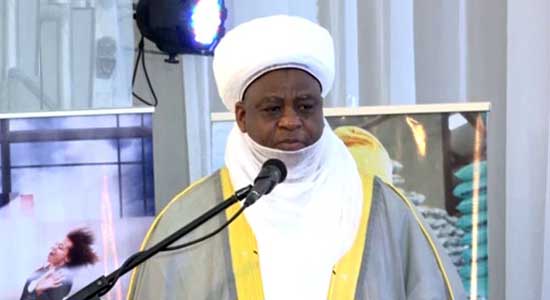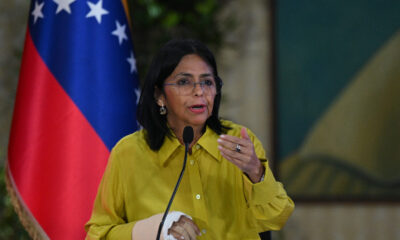Since the recent report that one in every four children fail DeoxyRibonucleic Acid, DNA, test, made headlines, discussions around what most people refer to as paternity scam has been raging across the country.
The argument is also about how unfaithful most women have become in marriage- a development believed in some quarters to be sending many men to their early graves.
DNA, responsible for one’s paternity, is a molecule that contains the genetic instructions for the development, functioning, growth and reproduction of all known organisms and many viruses. It’s essentially the master blueprint for life.
However, this test which is one of the breakthroughs in molecular biology has caused a lot of heartaches to many families. This is because when the result is contrary to what the man expects, it is not only the men that are left shattered, the children involved are equally disoriented, especially when they are already adults.
According to the latest study by Smart DNA Nigeria, covering data from July 2024 to June 2025, 25 percent of paternity tests returned negative, showing only a slight drop from the 27 percent in 2024.
The study further revealed that firstborn children were the most likely to yield to exclusions, with firstborn sons topping the list at 64 percent. Smart DNA said the trend raises troubling questions about family structures, trust and social stability in urban Nigeria.
Alongside domestic disputes, the report revealed a surge in immigration-related DNA testing, which accounted for 13.1 percent of all tests during the period.
The spike, according to the research, is linked to Nigeria’s ongoing “Japa” movement, as more families pursue foreign citizenship and documentation for children relocating abroad.
The data also showed sharp gender and age divides in testing patterns. It was established that men initiated 88.2 percent of all tests and this is often driven by long-standing doubts, while women accounted for just 11.8 percent.
Nearly half of all tests were ordered by men aged 41 and above, reflecting the influence of financial stability on decision-making. Meanwhile, most tests involved children aged zero to five suggesting parents’ preference for resolving doubts early.
Geographically, Lagos remained the hub for DNA testing, accounting for 69 percent of all cases, though the balance shifted from the Mainland which stood at 59.4 percent toward the Island at 40.6 percent. Lekki led as the single top location at 20.3 percent.
In terms of ethnicity, Yoruba clients made up 53 percent of cases, Igbo 31.3 percent and Hausa just 1.2 percent, a distribution that points to cultural differences in attitudes toward paternity testing, according to the report.
The report also found that 83.7 percent of tests were carried out for peace of mind rather than legal purposes with court-mandated cases making up only 1.4 percent.
Most families tested only one child, reinforcing the view that suspicions are typically targeted rather than broad. Boys were tested more frequently than girls, reflecting traditional concerns over inheritance and lineage.
According to the Operations Manager, Smart DNA, Elizabeth Digia, the findings reflect more than just scientific data. “These statistics tell us something profound about trust, relationships and the legal and economic realities of Nigerian families today,” she noted, emphasising the need for sensitivity in handling the life-changing outcomes of DNA testing.
The report called for legal reform to address paternity fraud, greater integration of DNA testing into healthcare and public education to counter misconceptions about DNA services.
It emphasised that the findings reflect clients with existing paternity concerns and should not be generalised to the wider population.
Now, with the outcome of the research findings in the public domain, the arguments have taken various forms.
Some people believe that it is not necessary so long as nobody is contesting ownership of the child with the father.
Those on this side of the argument are insisting that except there is a man somewhere, who is claiming ownership of one’s children, DNA test is not necessary. Their argument is that such a test could only unearth a life-long secret and cause emotional and psychological trauma that could even lead to insanity or even death.
A vocal voice on this side is a clinical psychologist with a private hospital in Lagos, Dr Dipo Olawale.
“If you ask me, I would say that a man should not just subject his children to a DNA test just because he is suspicious of his wife’s fidelity in the marriage, except there is a man somewhere, who is contesting ownership of his children.
“This is because if the test turns out positive, meaning that the children belong to another man that you don’t even know, it will only cause you emotional and psychological trauma
“And if you are a temperamental person, you could even kill your wife out of anger and end up in jail. So, why not bury your suspicion and let peace reign so long as nobody is claiming ownership of your children; that’s my position on that,” he told DAILY POST.
However, there are those who argue that it is necessary to go for a DNA test once a man becomes suspicious of his wife’s fidelity, whether another man is contesting ownership of the children or not.
Those on this divide are also saying that such action is to prevent future heartbreak.
Chief Wole Adegbola is one of those who believe that once a man suspects his wife of engaging in extramarital affairs, he should call for a DNA test.
He said it is to forestall future heartbreak, which could be difficult to bear at that point.
He said: “It is advisable to call for a DNA test on your children, especially when they are still children, if you suspect that your wife has not been faithful.
“I say this because I have seen a man who found out from his wife that their 28-year-old son, who had graduated from the University, was not his biological son. This revelation came just because they had a misunderstanding and the woman got angry and in fit of that anger, she spilled the beans.
“What do you expect such a man to do? Where do you expect him to go from there? After training a child from nursery school to the university level, your wife is telling you that the child is not yours after all, how do you explain that?
“So, it is always very important to know early so that even if you decide to train such a child or children, it will be a deliberate personal decision.
“This is also very important because some women are devils who have come into some men’s lives to destroy them.
“Such women will let the cat out of the bag when you least expect it, whether anybody is laying claim to the children or not.
“So, to avoid the psychological and emotional torture that comes with such future revelations, it is advisable to go for a DNA test early in marriage, especially where there are sufficient grounds for suspicion.”
FOLLOW US ON:
FACEBOOK
TWITTER
PINTEREST
TIKTOK
YOUTUBE
LINKEDIN
TUMBLR
INSTAGRAM

 Politics23 hours ago
Politics23 hours ago
 Lifestyle23 hours ago
Lifestyle23 hours ago
 Business23 hours ago
Business23 hours ago
 Lifestyle24 hours ago
Lifestyle24 hours ago
 Sports23 hours ago
Sports23 hours ago
 News22 hours ago
News22 hours ago
 Lifestyle13 hours ago
Lifestyle13 hours ago
 News23 hours ago
News23 hours ago






























